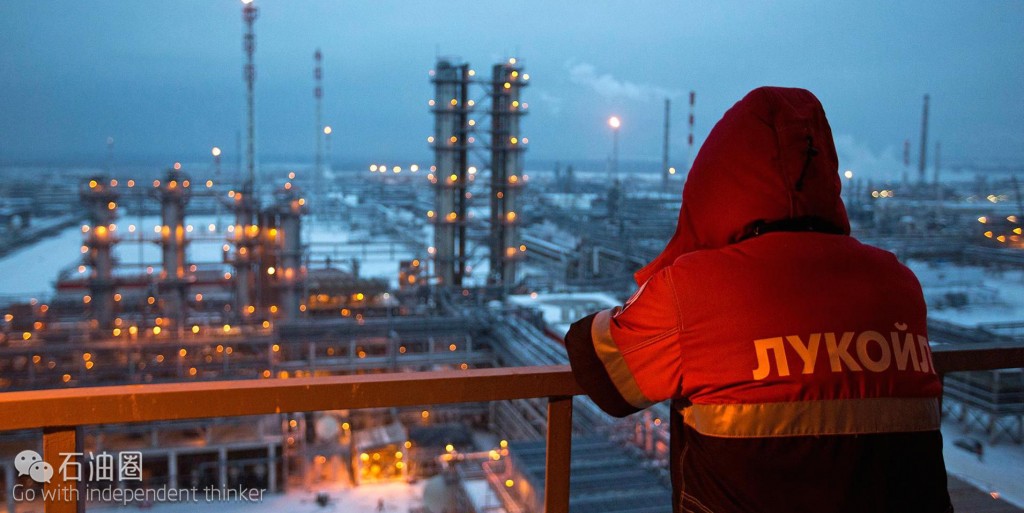
从本世纪初开始,俄罗斯就一直以天然气供应控制其他国家。为对抗其能源供应外交策略,欧盟制定了诸多措施来遏制俄罗斯对天然气的控制,但仍困难重重,目前成效如何呢?跟着小编一起了解一下~
俄罗斯是世界天然气资源最为丰富的国家,产量居世界首位。俄罗斯曾一度以天然气供应为由企图控制其他国家,虽然目前俄罗斯借助天然气仍能保持一定的政治影响力,但与之前相比,俄罗斯通过天然气管线垄断的根据地被蚕食,其威胁程度已经大大降低。乌克兰国家天然气公司Naftogaz近期已确认,他们将避开欧盟直接与俄罗斯天然气巨头公司Gazprom就天然气采购问题进行谈判。乌克兰直接对话Gazprom公司的意愿是一种自信心增强的表现;在欧盟的帮助下,乌克兰将采取行动削弱俄罗斯将天然气作为政治武器的能力。
天然气的“去政治化”
在本世纪初期,俄罗斯一直利用天然气作为扩大政治影响力的一个手段,不仅企图控制乌克兰还包括中欧和东欧的其他国家。这主要是由于这些国家别无他选,只能从俄罗斯进口天然气。作为回应,欧盟一直将俄罗斯天然气视为洪水猛兽,制定了诸多措施迫使天然气贸易免去政治因素的影响。如欧盟制定的欧盟能源一揽子计划,就是希望通过逐渐完善的法律体系,将天然气管道运输者,与管道、基础设施(例如天然联络站和管网)所有者剥离,使天然气可以在全欧洲范围更加自由的运输。
作为非欧盟成员的乌克兰,早前建设基础设施进度缓慢,完全依赖于俄罗斯天然气的直接进口,而今已拥有了大量的基础设施。目前乌克兰和其西部的斯洛伐克、波兰、保加利亚之间已有足够多的管道连接,乌克兰可以每年从东欧进口200-250亿立方天然气。虽然乌克兰购买的大多数天然气仍产自俄罗斯,但其可以不再以高售价从俄罗斯购买,而是从邻国以更低的价格购买天然气。更重要的是,天然气进口国Brussels也废除了与俄罗斯签署的关于禁止进口国往其他国家再出口和销售天然气的合同条款,这样一来,乌克兰进口天然气就更加方便了。
其中的地缘政治环境
另外,欧盟已将乌克兰(包括Balkan半岛)纳入到了其能源联盟的范围,这是针对那些非欧盟邻国来扩展其能源市场范围的举措,乌克兰也正逐渐采纳欧盟能源一揽子计划的主张和法规。
除了基础设施建设,乌克兰首都Kiev也制定了限制能源消耗的措施,包括提高冬季取暖的效率、发电站多使用煤炭等。2011年乌克兰共消耗了537亿方天然气。2015年乌克兰共消耗了288亿立方米天然气,仅进口了162亿方天然气,这其中仅70亿立方是从俄罗斯直接购买,另外92亿方从欧盟购买,这种趋势将在今后持续。从2015年11月开始,乌克兰就停止了直接从俄罗斯购买天然气,尽管其通过三边谈判已经与Gazprom达成了冬季供应协议,但在2015-2016年的寒冬,他们仍然没有再直接从俄罗斯购买天然气。
目前,类似这样的改变多数已成定局,尽管莫斯科和Kiev间的政治关系异常紧张,Naftogaz和Gazprom之间的谈判大多都只是经济驱动,或者实际需求驱使。因Naftogaz已不再需要天然气协议,或许还在谈判中占上风。然而,协商未必顺利。因为在过去的交易中,谈判双方之间存在着许多悬而未决的赔款、反索赔、诉讼及反诉讼问题。这其中就包括了2016年1月 Gazprom以增加天然气运输费用威胁Naftogaz的起诉。
(地缘政治,是政治地理学中的一种理论。它根据各种地理要素和政治格局的地域形式,分析和预测世界或地区范围的战略形势和有关国家的政治行为。)
北方管道复线:暂未完工
尽管欧盟一直推出各种方案来促使形成一个共同的能源市场,俄罗斯提议的北方管道复线工程确是一种公开分离中欧和东欧天然气市场的战略,该工程是建立一条输送能力在550亿立方米天然气的管道,穿过波罗的海,直接从俄罗斯到德国,绕过乌克兰和东欧国家。德国被选做审查工程的经济性和商务性,其反对者称这是让柏林出卖能源联盟,直接与俄罗斯协商交易,还可能还纵容俄罗斯将天然气供应变得更加政治化。
不仅如此,俄罗斯的战略还包括限制客户转售天然气,并从保加利亚、波兰及包括Estonia、Latvia和Lithuania在内的波罗的海国家获得不公平的价格。欧盟表示,俄罗斯天然气滥用市场支配权控制穿越波兰的亚马尔运输管道,迫使保加利亚支持已取消的俄罗斯南溪项目,该项目是将天然气途经黑海运抵欧洲。
从东欧的角度来看,北方管道复线仍会被俄罗斯利用,来切断天然气供应。从历史的角度来看,多数俄罗斯天然气都流经东欧国(如波兰或者乌克兰)而到达中欧市场(如德国);尽管如此,俄罗斯仍然试图切断通往整个欧洲天然气的供给,以此来作为对乌克兰的惩罚。对于该工程的批评者,建设更多基础设施来将天然气直接运往德国,会解除对俄罗斯的限制,特别能使俄罗斯有能力切断对东欧的天然气供给。在此之前,切断对东欧的供给也意味着切断对德国的供给。尽管这些东欧国家建设了相当多的为贸易提供方便的众多基础设施,但依然匮乏,当天然气供应大规模终止时,他们仍会感到非常短缺。
正因如此,包括能源联盟委员在内的许多东欧官员都认为,一旦管道建成,这将严重违背的欧盟法律;而德国认为,管道的海上部分不需要遵循欧盟能源一揽子计划,这正是争论的焦点,联盟委员认为欧盟能源一揽子计划必须扩展应用到整个欧盟专属经济区,而不仅仅是欧盟领土范围内。欧盟委员会目前仍在讨论,并没有对此事进行裁决。
Brussels是否应该对欧盟能源一揽子计划海上应用给出解释,就经济可行性角度,管道项目可能存疑。一旦裁决,将会把管道所有者即目前占超过50%股份的Gazprom与天然气供给方Gazprom剥离。
在项目实施过程中,德国一直在试图缓解邻国的担忧。近日,德国经济部长Sigmar Gabriel阐述了柏林同意需满足的三方面条件:包括管道建设必须遵循德国法律、不影响乌克兰的管网以及不能限制向东欧供应天然气。尽管柏林不断试图缓解紧张气氛,但一旦管道建成,东欧国家普遍认为,后两个条件的执行将会异常困难。
虽然管道和天然气供应的担忧有所缓解,争议仍然集中在欧洲能源安全问题上。由于欧盟单一市场的政策,俄罗斯将不可避免地仍然是该地区最大的天然气供应商。2015年,除了24亿立方米天然气是出口到白俄罗斯和乌克兰之外,俄罗斯出口160亿立方米天然气到欧洲。欧洲所能做的就是采取一切可能的措施限制俄罗斯因政治因素操纵天然气供应的能力。
来自/ Natural Gas Europe 译者/白小明 编辑/Wang Yue
There was a time when Russia could manipulate other countries with its natural gas supplies. It still can, but the threat is less effective than it once was. Ukraine’s national natural gas company, Naftogaz, confirmed Wednesday that it will consider negotiating direct natural gas purchases with Russian natural gas giant Gazprom without mediation from the European Union. Ukraine’s willingness to deal directly is a sign of growing assertiveness and also of how much Kiev — with help from Brussels — has been able to chip away at Moscow’s ability to use gas supplies as a political weapon.
Depoliticizing Natural Gas
Moscow’s use of energy to affect policy in not only Ukraine but also other countries in Central and Eastern Europe that import Russian gas almost exclusively was a constant theme of the 2000s and early 2010s. In response, the European Union enacted a number of initiatives designed to depoliticize natural gas. Legal architecture was created, such as the Third Energy Package, which split the ownership of natural gas transiting a pipeline from the owners of the pipeline, and physical infrastructure, such as gas interconnectors and pipelines, was built up so that gas could move more freely through Europe.
Ukraine, which is not a member of the European Union, had been slower to develop this legal and physical infrastructure but now it largely has. There are now enough interconnections between Ukraine and its western neighbors — Slovakia, Poland and Hungary — that Ukraine can import up to 20 billion to 25 billion cubic meters of natural gas annually from Eastern Europe. Though most of the natural gas that Ukraine buys still originates in Russia, its ability to import from its neighbors means that Russia can no longer charge Ukraine a much higher price than it charges them because Ukraine could just buy the gas at a lower price from those countries. And, importantly, Brussels is breaking down an element of Russia’s contract with natural gas importers that prohibits them from exporting or selling gas to others.
What is a Geopolitical Diary?
Moreover, the European Union has included Ukraine (and the Balkans) in its broader Energy Union initiative, which Brussels established to extend its common energy market initiatives to neighbors not in the European Union. Ukraine has been gradually adopting Third Energy Package principles and legislation.
In addition to building up its physical infrastructure, Kiev has also implemented measures to limit natural gas consumption, including increasing efficiency in winter heating and using more coal for power generation. In 2011, Ukraine consumed 53.7 billion cubic meters of natural gas. In 2015, it consumed just 28.8 bcm, consequently reducing natural gas imports to 16.2 bcm in 2015, of which only 7 bcm was directly purchased from Russia. (Ukraine imported 9.2 bcm via Europe.) This trend even continued over the entire course of 2015. Ukraine has not directly purchased gas from Russia since November 2015 and did not during the worst of the 2015-16 winter even though it had negotiated a winter package with Gazprom through the trilateral negotiating framework.
Now that these changes are largely in place, negotiations between Naftogaz and Gazprom will mostly be financially motivated, even pragmatic, although the political relationship between Moscow and Kiev remains extremely tense. Naftogaz may even have the upper hand because it does not need a gas deal, it merely prefers it. But negotiations are not necessarily going to be smooth. The two companies have a number of outstanding claims, counterclaims, lawsuits and countersuits pending against one another over past dealings. These include most recently Gazprom’s threats to sue Naftogaz over increasing natural gas transit fees in January 2016.
Naftogaz HQ (Photo: Naftogaz)
Nord Stream II: Still Divided
Though Europe is entirely on board with initiatives promoting one common energy market, Russia’s proposed Nord Stream II pipeline project is driving a wedge between its supporters (Germany being the strongest) and its Eastern European detractors, such as Poland and Slovakia. The project envisions routing a 55 bcm natural gas pipeline through the Baltic Sea directly from Russia to Germany, circumventing Ukraine and Eastern Europe. Germany has chosen to view the project in purely economic and business terms, while the project’s detractors regard it as Berlin selling out on the Energy Union concept and directly negotiating deals with Russia — possibly allowing Russia to still politicize natural gas supplies.
From the point of view of Eastern Europe, Nord Stream II makes it more likely for Russia to implement natural gas cutoffs again than without the pipeline. Historically, most Russian natural gas flowed through Eastern European countries such as Poland or Ukraine to Central European markets such as Germany, and despite this, Russia was twice willing to cut off natural gas to all of Europe to punish Ukraine for going against its wishes. To the project’s detractors, adding even more infrastructure to directly deliver natural gas to Germany eases the constraints on Moscow’s ability to cut off supplies to Eastern Europe, specifically. Previously, cutting off gas to Eastern Europe also meant cutting off gas to Germany. Though these Eastern European countries have built up considerable infrastructure for trading, it is not perfect, and they would still feel considerable shortages in the event of a substantial cutoff.
It is for this reason that Eastern European officials, including Slovakia’s Maros Sefcovic, the European commissioner for the Energy Union, have been strong advocates of aggressive interpretations of EU law if the pipeline is built. EU law, however, is not clear on this particular pipeline. Germany has taken the view that key aspects of the offshore part of the pipeline do not need to adhere to all of the Third Energy Package, whereas Sefcovic has argued that the Third Energy Package should extend to the exclusive economic zone of Europe, not just its territories. The European Commission has not officially ruled on the issue, but it is currently discussing an interpretation. Should Brussels interpret the application of the Third Energy Package offshore, the pipeline project may be in jeopardy over its economic viability. Such a ruling would require the stripping of the pipeline’s ownership — which is now supposed to be more than 50 percent Gazprom’s — from the supplier of the gas, which is of course Gazprom.
In the midst of this process, Germany has been trying to ease the concerns of its neighbors, and Wednesday, German Economy Minister Sigmar Gabriel outlined three conditions for Berlin’s approval. Those are that the pipeline must adhere to German regulations, must not affect Ukraine’s pipelines and must not limit Eastern European natural gas supplies. Though Berlin may be trying to ease tension over the divisive pipeline, the problem from the perspective of Eastern Europe is that enforcing the latter two conditions once the pipeline is built would be difficult.
Though the concerns over pipelines and natural gas supplies have eased, the issues remain at the center of most political debate in Europe over energy security and will continue to do so. Despite the European Union’s single market policy, Russia will inevitably remain the region’s most significant natural gas supplier. In 2015, Russia exported 160 bcm of natural gas to Europe in addition to the 24 bcm it exported to Belarus and Ukraine. Only five countries — none in Europe — produced that much natural gas that year. The best Europe can do is limit Russia’s ability to manipulate gas supplies for political aims.
None of this, however, detracts from the reality that the utility of using natural gas as a political lever is far less potent and that Ukraine and others have made significant progress in developing natural gas supply options. Indeed, Russia’s increased pragmatism and its business-minded approach to its energy negotiations with Europe — and now Ukraine — are indicative of the shift in Moscow’s thinking on the relationship between energy exports and its foreign policy.
未经允许,不得转载本站任何文章:
-

- 甲基橙
-
石油圈认证作者
- 毕业于中国石油大学(华东),化学工程与技术专业,长期聚焦国内外油气行业最新最有价值的行业动态,具有数十万字行业观察编译经验,如需获取油气行业分析相关资料,请联系甲基橙(QQ:1085652456;微信18202257875)


 石油圈
石油圈
